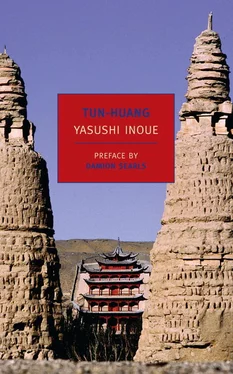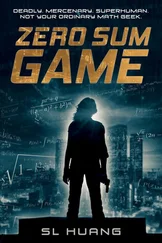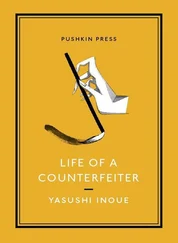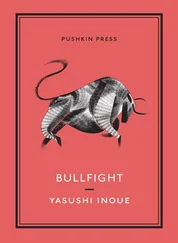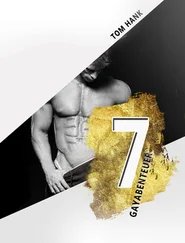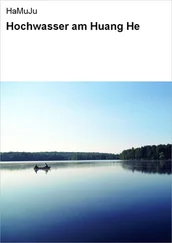When the inspection of the armies was completed, it was sunset. The crimson sun sank into the horizon beyond the western fields, and the blood-red clouds tinted the vast plains with their fire.
Yüan-hao had stepped up on a platform to speak. Idly, Hsing-te’s gaze wandered far behind the commander in chief; a solitary figure had appeared on the distant city wall.
For no particular reason, Hsing-te watched that small dot. He was curious to know what a person could be doing there at this time. Not only that, but if he did not focus on that small movement, he wouldn’t know how to curb his boredom.
Yüan-hao had started to address his men. He seemed to be giving them instructions, but his voice was barely audible. Every so often Hsing-te caught phrases of the speech, carried by the wind from various directions.
Then it happened. Hsing-te saw the black speck, which had stood motionless for a while on the wall, suddenly leap off. It dropped beside the wall, trailing a long tail behind it. It was over in a second. There was no reaction in the gathering; no one else seemed to have noticed.
Yüan-hao’s voice continued to reach Hsing-te sporadically.
After a final night’s rest, Hsing-te’s unit set off toward the west early the next morning. All day long Hsing-te rocked on his horse. He was covered by sand and dust.
That night the forces camped along the banks of a dry riverbed. Hsing-te was tired from his ride and slept soundly until he was awakened by someone shaking him roughly. Wang-li stood there. When he saw that Hsing-te was awake, he said briskly, “There’s no mistake this time.”
“What do you mean?” Hsing-te was annoyed.
“She died. She’s really dead.” Wang-li sank to a sitting position.
“I don’t trust you. Do you think I’d believe you?” Hsing-te cried.
“I’m not lying. She threw herself off the city wall yesterday. She finally did die.” As Wang-li spoke, Hsing-te vividly recalled the scene he had witnessed the day before. So the black speck had been the Uighur girl.
“Are you sure?” Hsing-te asked. His voice trembled.
“There’s no mistake. That’s why Yüan-hao delayed our departure a day. I heard it from someone who’s in a position to know,” Wang-li replied. His head was bowed. Silence fell between the two. Finally, Wang-li broke out, “I’ll tell you now. I loved that woman. I still love her. I had always thought of women as mere tools. But when you brought that woman into my life, I fell in love with her. I hate to admit it, but I couldn’t help myself.”
“Why didn’t you look after her as I asked?”
“She was taken away from me. Yüan-hao found out about her. That bastard finally killed her off!” As he spoke, Wang-li groaned and glared at a spot in front of him, as though Yüan-hao were there.
Hsing-te was so overwhelmed by this display of emotion from Wang-li that he had no time to reflect on his own feelings. Suddenly Wang-li stood up and, as if to shake off his rage, uttered a strange, mournful shout. He remained standing for a long while with his face lifted toward the sky.
Hsing-te had no knowledge of how Wang-li had treated the girl in his care and he was no longer interested in finding out. There was something more important to think about. Hsing-te recalled the girl’s look when they had met two days before; in it he had seen astonishment, embarrassment, joy, and sadness. And then she had run off on her horse, undoubtedly because she could not express her feelings in any other way.
Hsing-te had not returned when the year was up. He had been at fault. There was nothing she could do but resign herself to fate. He couldn’t blame her for becoming Yüan-hao’s concubine or for anything else. In all likelihood she had flung herself from the wall to prove to Hsing-te the purity of her love for him. Now he was overcome with regret and infinite compassion for the girl. This display of her love touched him deeply.
If only he had stayed with her — if only he had kept his promise to return in a year, her fate might have been different. Though he could not be sure that she would have been happy, she might not have jumped off the wall.
Hsing-te regretted that he had not looked after the Uighur girl himself. She had to commit suicide, he firmly believed, to prove herself to him. His soul writhed in repentance.
The unit headed toward the Uighur capital of Su-chou, near Kan-chou. The distance from Kan-chou to Su-chou was one hundred and eighty miles, a journey of about ten days. The day after they had camped along the banks of the dry river, the troops crossed a gravelly plain and then entered the desert. They rode on and on, but the desert, devoid of any signs of vegetation, stretched as far as the horizon. To keep the horses’ hooves from sinking into the sand, wooden shoes were put on them, and the camels’ feet were covered with yak skins.
After three days of traveling through the desert, they came upon grasslands by the banks of a large river. They crossed the river and found themselves once more in the desert. Another three days’ journey through this arid wasteland brought them to the salt marshes. It was hard to judge how far the marshes extended, but the road along one edge was at least eighty miles long, and the banks appeared white as if frosted over, with a thick profusion of reeds.
When the marshes ended, barren wastelands continued until the men came in sight of snow-capped mountains in the distant southwest. From this point on, trees and houses could be seen here and there. Most of the trees were apricot; they swayed in the piercing cold winds.
Eight days after they had left Kan-chou, the troops entered Su-chou. They had naturally expected to fight some Turfans before they reached the garrison, but not a single Turfan soldier had been in sight. Su-chou was also a city fortified by high walls, but the majority of its residents were Uighurs, with a considerable number of Chinese as well, many of whom did not understand the Chinese language. This should have been the main base of the Uighurs who had lost Kan-chou, but every last Uighur soldier had retreated, and the Hsi-hsia army was able to enter Su-chou without suffering a single casualty.
From the wall, the snow-capped Ch’i-lien mountains were visible to the south, and the grayish yellow sea of the desert extended to the north. Within the city was a large spring brimming with clear, sweet water, and at its edge stood countless willow trees several hundred years old. Since the Han period, the spring water here had been used for wine, and it was said that “pearls gush forth from the spring, and its taste is akin to wine.”
Upon his arrival in Su-chou, Hsing-te realized that Kan-chou and Liang-chou, which he had considered to be frontier towns, were comparatively more civilized, with better living conditions than he had thought. One could live within the city of Su-chou itself, but just outside the walls the deadly sea of desertland stretched away; the saying, “flat plains for ten thousand miles, no sign of man or smoke” described this area exactly.
At Su-chou, Hsing-te was often overcome by homesickness, but he thought he had no right to feel this longing for China. In reading The History of the Former Han Dynasty and The History of the Later Han Dynasty , he had learned about Chang Ch’ien and Pan Ch’ao. A thousand years before, Pan Ch’ao had left the capital with only thirty-six followers, and the then far west, where he had fought the barbarians for half his lifetime, had been thousands of miles further west than Su-chou. In his later years, when Pan Ch’ao was over-come by homesickness, he had written his emperor, “Your subject does not hope to return to the command of Chiu-ch’üan, if I can only live long enough to reach the Yü-men Pass once more.” This pass was still two hundred and ninety miles west of Su-chou.
Читать дальше
